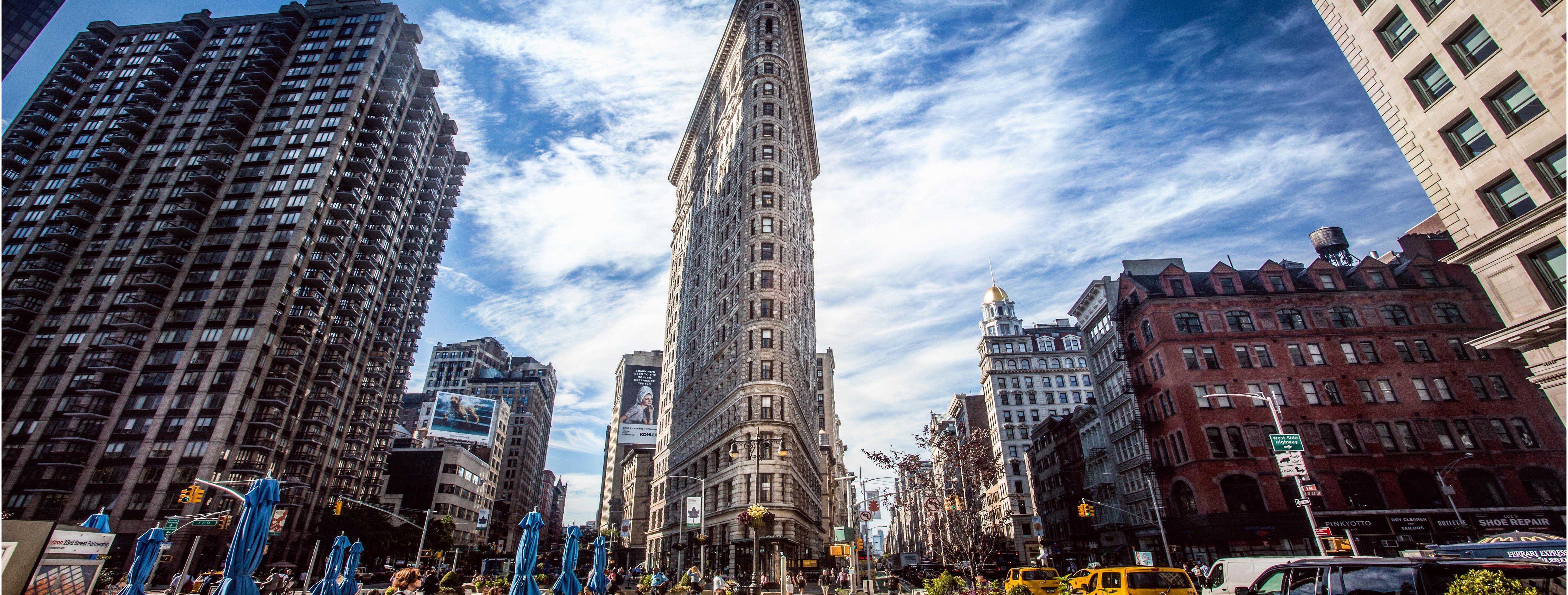When in search of contemporary art, you will find scores of galleries in Chelsea and Greenwich Village. But only in the Flatiron District can you view artifacts from Tibetan temples, hand-printed books, rare 19th-century advertising art, and interactive displays that reveal the beauty of mathematics all just a few blocks from one another.
Center for Book Arts
28 West 27th Street, Third Floor (between Fifth and Sixth Avenues)
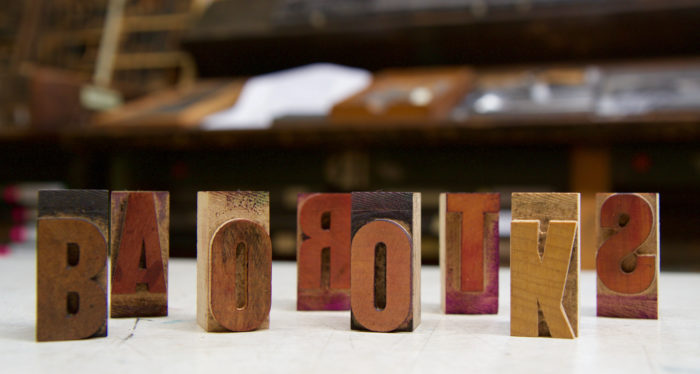
The Center for Book Arts. Image: Scry Photo/Wikimedia
At this not-for-profit museum, the focus is less on the content of books than on books’ physical attributes: printing, typography, binding, design. Among the volumes in the permanent collection are “32 Letters to My Dentist,” whose pages are actually envelopes containing the titular epistles, and “Beaut.e(Code),” with the text keypunched onto old-school computer cards. Other items on display include hand-printed books and zines, bookplates, and illustrations; the museum also encompasses a letterpress print shop with a 19th-century hand press and two binderies. The museum hosts special exhibitions throughout the year as well. Three such exhibits are running through December 15: “Inside/Out: Family, Memory, Loss, Displacement, Catastrophe” consists of 34 self-published photo books from artists in 20 countries documenting everything from World War II to the Fukushima nuclear disaster; “Monica Ong: Celestial Bodies” is a collection of “image-poems” that use astronomical maps to explore concepts surrounding motherhood and gender; and “Sally Alatalo: Cultivating Book and Land” harnesses visual poetry, language collages, and other media to describe the artist’s rehabilitation of a Michigan orchard.
Rennert’s Gallery
26 West 17th Street (between Fifth and Sixth Avenues)
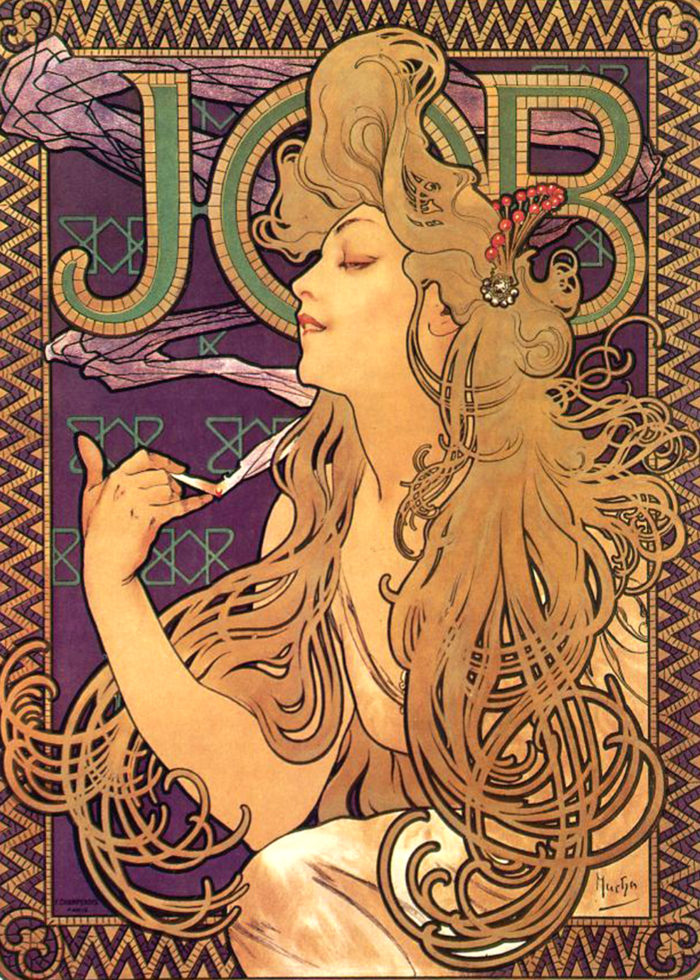
Original posters such as this 1896 advertisement by Alphonse Mucha are among the works that have been on display at Rennert’s Gallery. Image: public domain/Wikimedia
The posters on display at Rennert’s Gallery are probably far more artful—and valuable—than those that hung in your childhood bedroom or college dorm. In the airy, white-walled space you might see a lithograph by Henri Toulouse-Lautrec promoting the Moulin Rouge nightclub, an Art Nouveau advertisement for Moët & Chandon by Alphonse Mucha, an original version of A.M. Cassandre’s famed poster for the inaugural voyage of the Normandie, and World War I enlistment posters from countries on both sides of the conflict. Auctions are held several times a year, though you need not wait for one to browse and shop the gallery’s offerings, which include books on poster art.
Roman Zangief Photos
40 West 25th Street, Lower Level (between Fifth and Sixth Avenues)
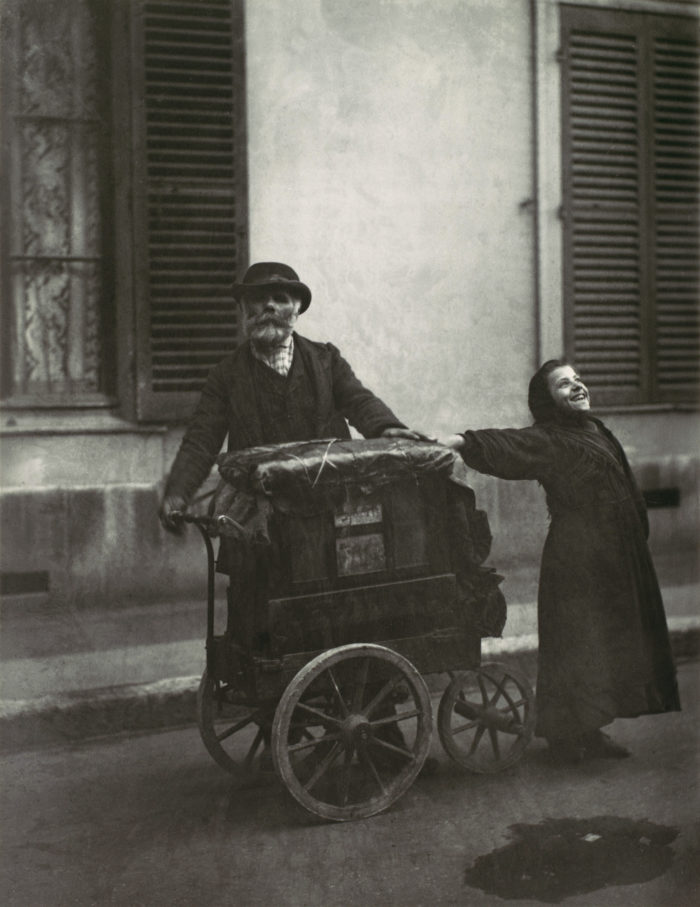
Antique photographs of Paris by Eugène Atget are among the works recently featured at Roman Zangief. Image: Public domain/Wikimedia
The photographs on display and for sale in this gallery span the history of the medium, from early 19th-century daguerreotypes to contemporary celebrity portraits. At any given time you might see photos of samurai from 19th-century Japan, Eugène Atget’s lyrical documents of turn-of-the-century Paris, or Marcus Leatherdale’s observations of the 1980s New York downtown scene.
Tibet House US
22 West 15th Street (between Fifth and Sixth Avenues)
As part of its mission to preserve Tibet’s culture, Tibet House has a permanent collection of more than 1,500 paintings, mandalas, manuscripts, sculptures, altars, and relics spanning centuries of Tibetan and Buddhist history. Special exhibitions are held as well; for instance,“Mantra in Motion,” works by contemporary calligrapher Jamyang Dorjee Chakrishar, is featured through November 8.
National Museum of Mathematics
11 East 26th Street (between Madison and Fifth Avenues)
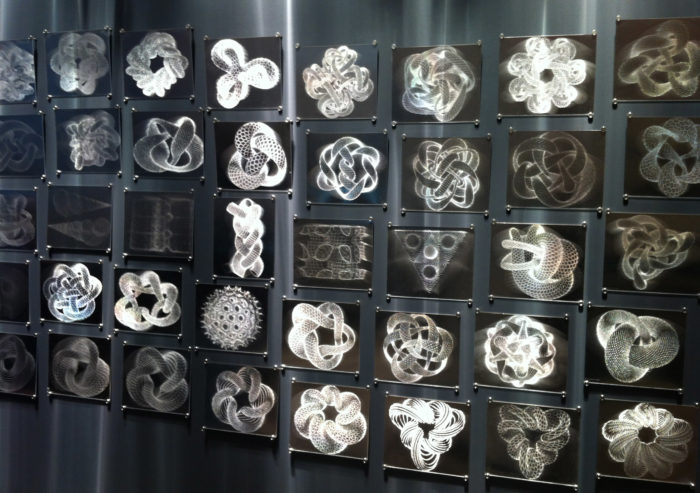
The National Museum of Mathematics. Image: justgrimes from Washington DC, USA/Wikimedia
Technically this is not an art gallery, but many of the interactive exhibits in the National Museum of Mathematics demonstrate the art of math and how math is key to visual arts. Cameras and filters enable you to create a dizzying array of fractal patterns; a digital paintbrush and canvas reveal elaborate symmetrical motifs; a kinetic wall translates algorithms into visual delights. Though the museum is tailored for kids, adults are sure to appreciate the beauty of math made physical at least as much as children.


